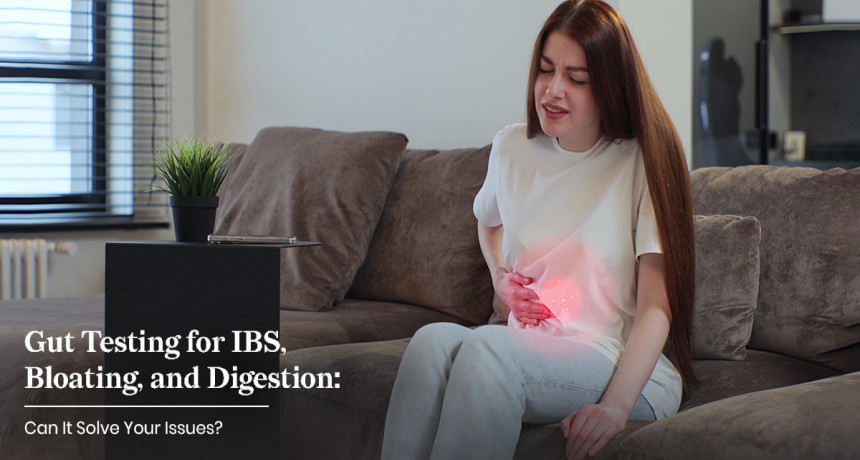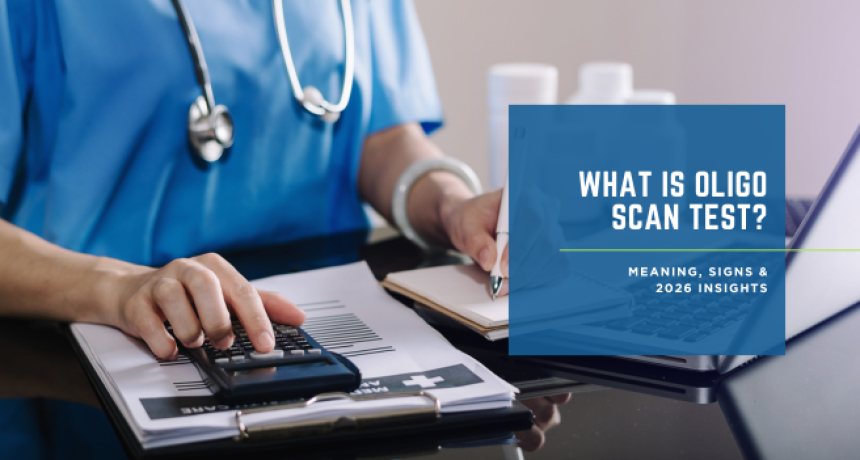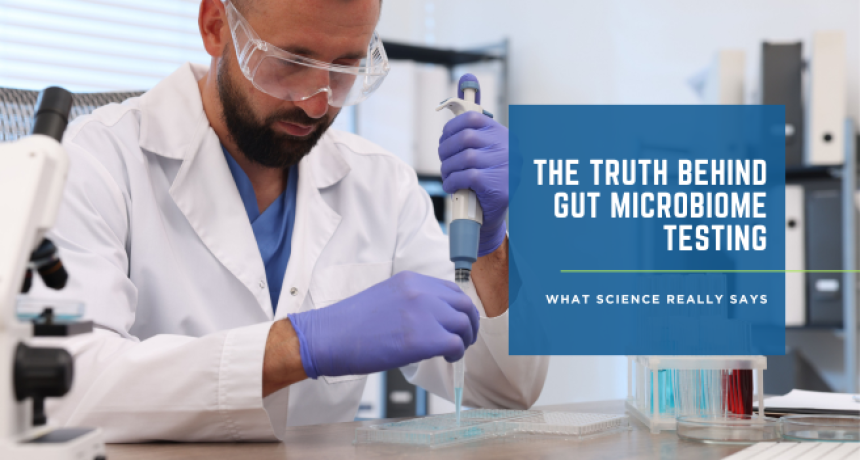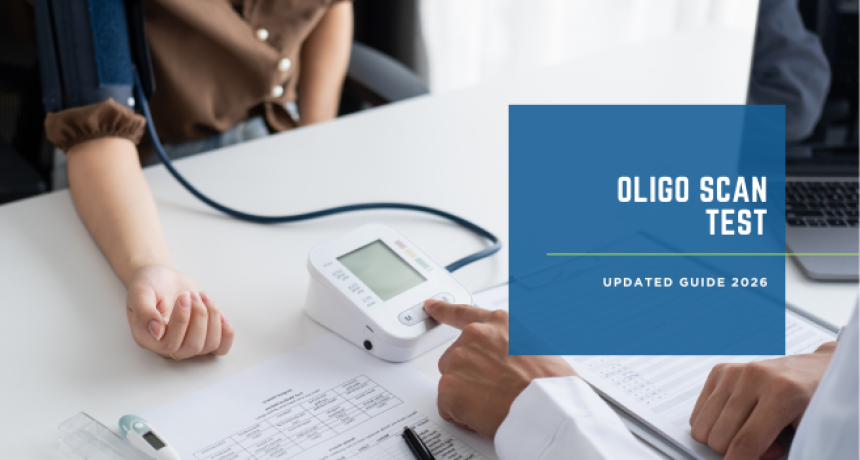Gut Testing for IBS, Bloating, and Digestion: Can It Solve Your Issues?
2025-03-23 Do you often experience bloating, gas, stomach pain, or irregular digestion? You're not alone. Millions of people worldwide suffer from Irritable Bowel Syndrome (IBS), food intolerances, and various digestive issues without a clear understanding of the root cause. Even after undergoing traditional medical tests, many people are left with no concrete answers about why they're experiencing discomfort. This leaves many wondering: Can gut microbiome test options provide a solution to these chronic digestive issues? With the latest advancements in gut health research, at-home microbiome gut test kits have emerged as a promising tool for analyzing your digestive health. These tests claim to uncover the underlying imbalances in your gut that may contribute to IBS, bloating, and poor digestion. Understanding what affects gut microbiome balance is crucial for addressing these issues effectively. But do these tests really work? Can they help solve your digestive issues, or are they just another passing trend? Let's take a deeper dive into the science behind these tests and explore how to test gut microbiome health to guide you toward better gut health. A gut microbiome test in Delhi is a diagnostic tool that analyzes the bacterial composition of your digestive system using a stool sample. The test identifies the types and quantities of beneficial and harmful bacteria present in your gut, as well as yeast overgrowth, inflammation markers, and other digestive imbalances that may contribute to symptoms like bloating, gas, diarrhea, constipation, and stomach discomfort. Your gut is home to trillions of microorganisms, including bacteria, fungi, viruses, and other microbes that play an essential role in digestion, immunity, and overall health. These microorganisms work together to digest food, regulate the immune system, and maintain the integrity of the gut lining. When this delicate balance of microbes is disrupted (a condition known as dysbiosis), it can lead to various gastrointestinal issues such as IBS, bloating, and indigestion. A proper gut health microbiome diet can help maintain this balance. By analyzing the microbiome's composition, microbiome gut test options help to reveal imbalances or overgrowths of harmful bacteria and provide insights into how these imbalances may be affecting your digestion. The result is a personalized approach to improving your microbiome gut health, rather than trial and error with over-the-counter remedies or broad dietary changes. Learning how to test gut microbiome health is simple with modern testing kits: Collect a Sample: The first step involves collecting a small stool sample from the comfort of your home using a provided kit. Send It to a Lab: Once you've collected the sample, send it off to a lab where experts analyze it using advanced DNA sequencing technology. Receive a Report: After analyzing your gut sample, you will receive a detailed report that breaks down the bacteria present in your gut, highlights any imbalances, and provides personalized recommendations for a gut health microbiome diet, gut microbiome supplement options, and other potential treatments. Irritable Bowel Syndrome (IBS) is a complex disorder with symptoms that can vary greatly from person to person. It often includes symptoms like chronic diarrhea, constipation, bloating, and abdominal pain. Traditional tests, such as blood tests or colonoscopies, may not provide sufficient insight into the specific triggers of IBS. However, a microbiome gut test can offer valuable information by identifying: Bacterial imbalances that may be exacerbating IBS symptoms. Food intolerances such as lactose or gluten sensitivity, which are common triggers for IBS. Inflammation markers linked to gut irritation or infections. Once these underlying factors are identified, a gut microbiome test can guide your next steps toward managing IBS symptoms, such as: Adjusting your gut health microbiome diet to avoid specific trigger foods. Taking targeted gut microbiome supplement options that support the growth of beneficial bacteria and help restore balance. Following a personalized treatment plan that might include lifestyle changes, stress management, or prescription treatments. Bloating is a common complaint for many people, often causing feelings of fullness, discomfort, and even visible abdominal distension. It can be the result of various digestive issues, including gut dysbiosis, food sensitivities, or slow digestion. A gut microbiome test can shed light on potential causes of bloating, such as: Overgrowth of gas-producing bacteria: Certain types of bacteria, such as methane-producing archaea, can lead to excessive gas production, which contributes to bloating. Lactose or gluten intolerance: Both conditions can interfere with digestion, leading to bloating and discomfort. Inflammatory markers: Elevated inflammation levels in the gut may indicate an underlying issue, such as leaky gut or gut irritation, which can contribute to bloating. Understanding what affects gut microbiome balance is crucial for addressing bloating. With this information, a microbiome gut test allows you to: Make dietary adjustments by eliminating or reducing foods that trigger bloating (like dairy, gluten, or FODMAPs). Take digestive enzymes that can help break down certain foods and improve digestion. Follow a probiotic protocol that promotes the growth of beneficial bacteria and reduces bloating over time. Many digestive issues stem from a lack of beneficial bacteria in the gut, which can impair your ability to digest and absorb nutrients effectively. For instance, you may struggle with digesting fiber, fats, or proteins, leading to symptoms like gas, diarrhea, or constipation. A gut microbiome test can help by identifying: Enzyme deficiencies: If your gut lacks the necessary enzymes to break down certain foods, this could lead to poor digestion and nutrient malabsorption. Gut inflammation: Inflammation in the gut can interfere with the normal digestion process, making it harder to digest food efficiently. Unbalanced gut flora: Imbalances in gut bacteria can also affect digestion, leading to symptoms like bloating, discomfort, and poor nutrient absorption. Once your test results are in, your personalized report may include recommendations such as: Prebiotics and probiotics to restore a healthy balance of gut bacteria. Enzyme supplements to aid digestion. Dietary adjustments to incorporate more food for gut microbiome health and reduce inflammation. Not all gut tests are created equal. If you're looking for a reliable and comprehensive test to address IBS, bloating, and digestion issues, GUT360 is an advanced gut microbiome test designed specifically to analyze over 30+ gut health markers related to IBS, bloating, food intolerances, and digestive concerns. Detects IBS-Related Bacteria: GUT360 helps identify bacterial imbalances that may be contributing to IBS symptoms. Analyzes Digestive Enzyme Deficiencies: It can detect enzyme deficiencies that may hinder your ability to digest food properly. Identifies Food Sensitivities: The test can highlight intolerances to foods like gluten, lactose, and FODMAPs, which are often linked to digestive discomfort. Provides Personalized Solutions: After testing, you'll receive actionable recommendations based on your unique gut profile, including specific food for gut microbiome health. Includes Expert Consultation: GUT360 offers access to expert consultations, ensuring you get the best advice tailored to your needs, including gut health microbiome diet suggestions. Once you've completed the microbiome gut test, you'll receive a detailed analysis report that will help you understand your gut health better. This report will break down the following key areas: Your report will provide an in-depth analysis of the various types of bacteria, fungi, and other microorganisms present in your gut. This includes the balance of beneficial bacteria (e.g., Bifidobacteria, Lactobacilli) and potentially harmful bacteria (e.g., Firmicutes or Clostridia) that could be impacting your digestive health. Understanding what affects gut microbiome composition is crucial for developing an effective treatment plan. The test can reveal whether your body is lacking certain digestive enzymes, such as those needed to break down lactose, gluten, or other complex carbohydrates. This information helps tailor your gut health microbiome diet and supplements to ensure proper digestion and nutrient absorption. The analysis will flag any potential food intolerances, such as lactose intolerance, gluten sensitivity, or FODMAP issues, which can exacerbate digestive issues like bloating, gas, and diarrhea. You'll gain clarity on which foods you should limit or avoid to improve your microbiome gut health. The report will highlight any signs of inflammation in the gut, which can contribute to chronic digestive symptoms like IBS, bloating, and discomfort. High inflammation can also be linked to conditions like leaky gut syndrome, where toxins and undigested food particles leak into the bloodstream. Based on your gut health profile, the report will provide personalized recommendations on: Dietary changes: Suggested food for gut microbiome health to include and avoid based on your specific sensitivities. Probiotics and prebiotics: Tailored advice on the best strains of probiotics and prebiotics that can help restore balance in your gut. Enzyme supplements: If necessary, the report will recommend digestive enzyme supplements to support digestion and nutrient absorption. Gut microbiome supplement options: Specific supplements that can address your unique gut imbalances and support digestive health. No, IBS is a clinical diagnosis made based on symptoms. However, gut microbiome test options can identify bacterial imbalances and food intolerances that contribute to IBS symptoms. Advanced tests like GUT360 use DNA sequencing technology, providing highly accurate and reliable insights into your gut bacteria and microbiome gut health. Most microbiome gut test options, including GUT360, deliver results within 2-3 weeks from the time the lab receives your sample. Once you receive your results, it's best to schedule a consultation with a gut health expert. They'll help you create a personalized gut health microbiome diet and probiotic plan tailored to your specific needs. Diet is one of the most significant factors in what affects gut microbiome composition. Consuming a diverse range of food for gut microbiome health, particularly fiber-rich foods, can promote beneficial bacteria growth and improve overall gut health. If you're struggling with IBS, bloating, or ongoing digestion issues, learning how to test gut microbiome health with a test like GUT360 can help uncover hidden imbalances and provide targeted solutions. Instead of guessing which foods or probiotics might help, a microbiome gut test provides science-backed insights and personalized recommendations based on your unique gut profile. By taking control of your digestive health and addressing the root causes of your discomfort through proper gut health microbiome diet choices and appropriate gut microbiome supplement options, you can experience lasting relief and regain a better quality of life. 📌 Take Control of Your Digestive Health Today! Book your GUT360 gut microbiome test in Delhi now and uncover the root cause of your digestive symptoms. Schedule a consultation with a gut expert to receive personalized solutions, including food for gut microbiome health recommendations, and regain your digestive well-being. Don't wait—take action now to transform your microbiome gut health and live free from discomfort!Introduction
What Is a Gut Microbiome Test?
How Does a Gut Microbiome Test Work?

How Can Gut Testing Help with IBS, Bloating, and Digestion?
1. Identifying IBS Triggers
2. Understanding the Causes of Bloating
3. Improving Digestion
GUT360: The Best Gut Microbiome Test for IBS & Digestion
Why Choose GUT360?
Detailed Analysis Report: What Can You Expect?
1. Gut Flora Composition
2. Digestive Enzyme Deficiencies
3. Food Sensitivities and Intolerances
4. Inflammation Markers
5. Personalized Recommendations
Frequently Asked Questions (FAQs)
1. Can a gut test diagnose IBS?
2. How accurate are gut microbiome tests?
3. How long does it take to get results?
4. What should I do after getting my results?
5. How does diet affect my gut microbiome?
Final Thoughts: Should You Get a Gut Test?
.png)















